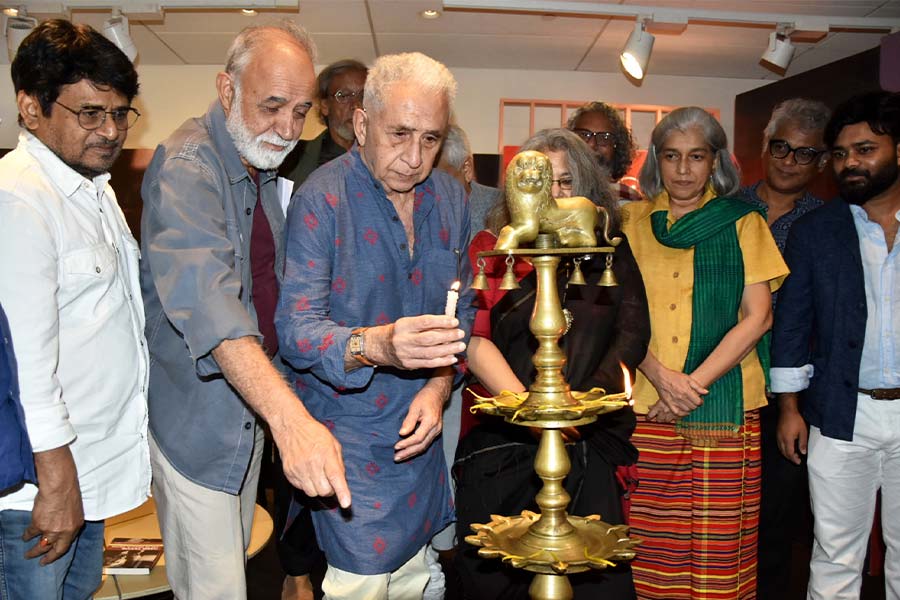Art isn’t just about entertainment. It is also meant to inspire thought, ignite dissent and provide purpose. Celebrated playwright Habib Tanvir epitomised this with a compelling body of work that continues to move theatre lovers. In order to celebrate the centenary of this legendary thespian, the Kolkata Centre for Creativity (KCC) partnered with Antiquity Natural Mineral Water to create a three-day theatre festival titled ‘Dekh Rahe Hain Nayan’, from August 30 to September 1. The art centre near EM Bypass became a repository for Tanvir’s life, theatre, literature and art through a series of masterclasses, panel discussions, exhibitions, screenings and performances. My Kolkata brings you some snippets from Day 1.
The event commenced with an inauguration ceremony, where eminent theatre personalities remembered Tanvir’s presence, and his contribution to their lives.
Actor-director M. K. Raina, the co-curator of the festival, recounted how he first encountered Tanvir as a schoolboy in Kashmir, and harboured the desire to act in one of his plays. “I remember being utterly dejected when I found out that there was no part for me. Life came full circle when years later, his nephew called me and asked to contribute to a book they were working on, about his life. In this age, where expression faces the biggest challenges and creativity is under threat, Habib sahab’s work is even more important. I hope that he’s listening to us from wherever he is,” he smiled.
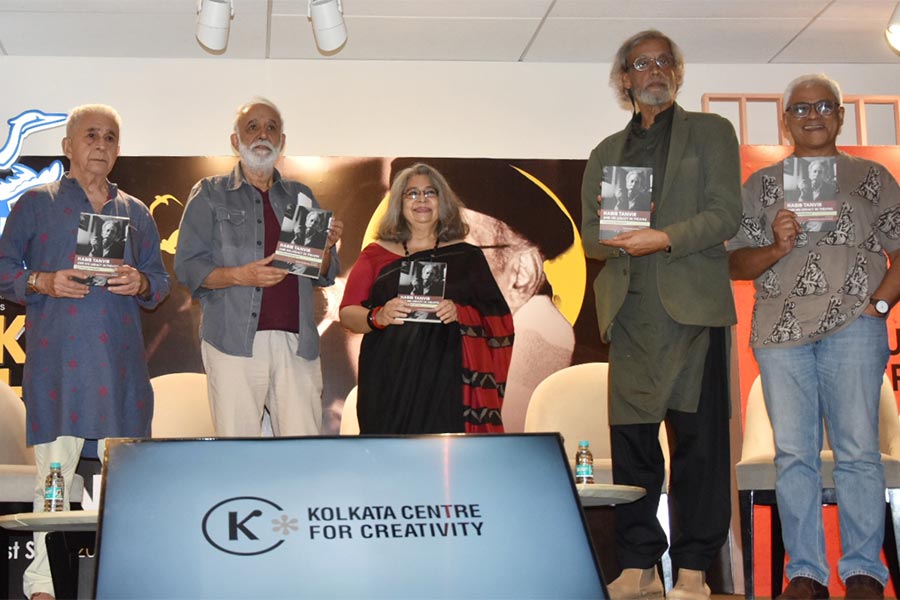
(L-R) Naseeruddin Shah, M. K. Raina, Anjum Katyal, Sudhir Mishra and Sudhanva Deshpande launched the book, ‘Habib Tanvir and His Legacy in Theatre: A Centennial Reappraisal’
Naseeruddin Shah lamented over how he never had a chance to work with Tanvir, adding that the thespian’s greatest gift was his simplicity. He evidenced this through an anecdote from two decades ago, where Tanvir got an offer from a hotshot producer to work in his film. “Habib sahab called me and asked, ‘Kitne paise maangu?’ I told him to ask for 10 lakhs. I promptly heard the sound of the phone falling from his hand! Two days later, he called me and said that he had asked for five, and settled for three,” the actor chuckled. Shah also spoke about how Tanvir’s work inspired him to look beyond his fascination with English theatre and literature, to more rooted narratives. “While in Delhi, I was amazed by Ebrahim Alkazi’s plays, and his larger-than-life characters. But when I saw Habib sahab’s Agra Bazar, mere dimaag ki nassein khul gayein. I was moved to tears,” he said.
Ratna Pathak Shah recounted how her tryst with Tanvir began from her childhood. Her mother, legendary Gujarati actress Dina Pathak, shared a warm friendship with the playwright, and she often played with Tanvir’s daughter, Nageen. “I only knew him as ‘Habib uncle’ at the start. Growing up, I knew little beyond Bombay and Gujarat. But watching Charandas Chor, which was based on a Rajasthani folk tale, made me feel like this was my world, and I had been away from it for way too long. He introduced me to the true potential of Indian traditional theatre,” she beamed.
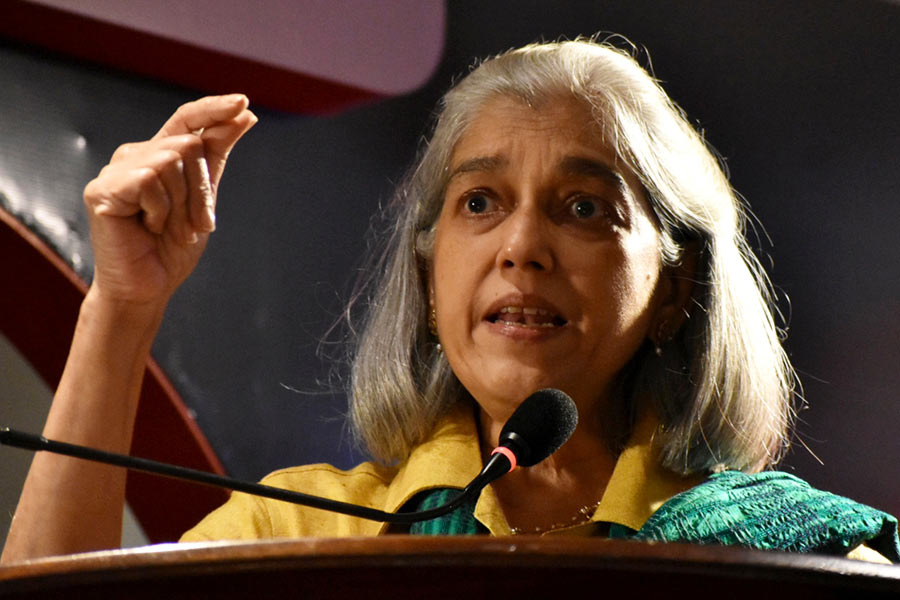
Ratna Pathak Shah recounted how her tryst with Tanvir began from her childhood
National Award-winning director Sudhir Mishra credited Tanvir for his entire career. When his father was hesitant about Mishra’s work in theatre, it was Tanvir who put his heart to rest. “Habib sahab had this international worldview, but with a local touch. Interactions with him made me a better filmmaker. Unhone mera dimaag khol diya tha,” Mishra said, adding that while he was embarrassed by his first film, each frame of Habib Tanvir’s face would instil him with unmatched pride.
The inauguration ceremony was followed by the book launch of Habib Tanvir and His Legacy in Theatre: A Centennial Reappraisal, edited by Anjum Katyal and Javed Malick. This compilation of essays looks at the lasting impact Tanvir left by blending tradition with modernity in post-Independent Indian theatre.
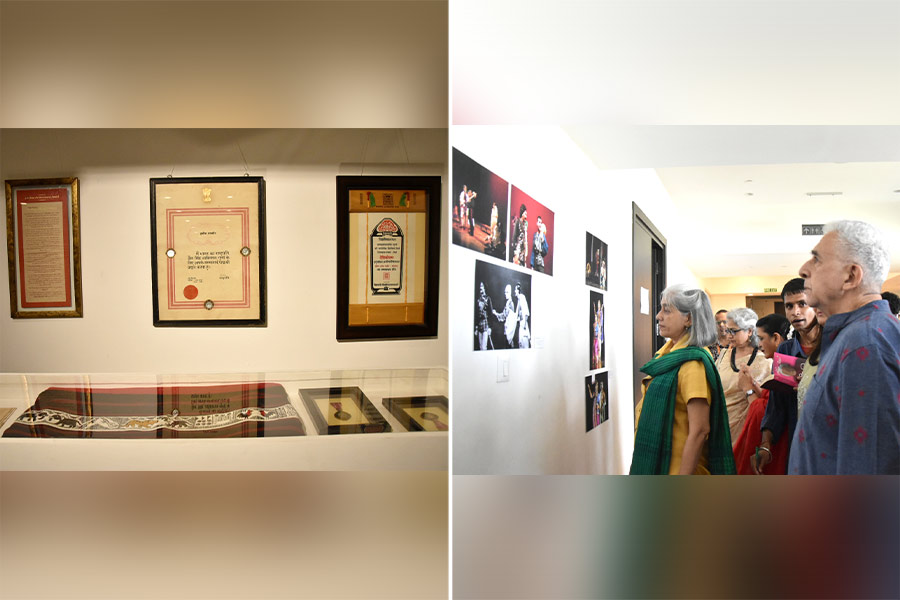
KCC’s walls were adorned with Tanvir’s memorabilia and accolades
Next, it was then time for an enthralling performance by classical vocalist and thespian, Nageen Tanvir. Having been a part of her father’s Naya Theatre since childhood, she shared anecdotes about him whilst captivating audiences with folk Chhattisgarhi songs. Smiling to the applause following her rendition of Chola Maati Ke Ram, which was eternalised by the 2010 film, Peepli Live, Nageen said, “My father thoroughly researched every play. This song is actually a tribal tune from Madhya Pradesh, which he incorporated in his play, Bahadur Kalarin.”
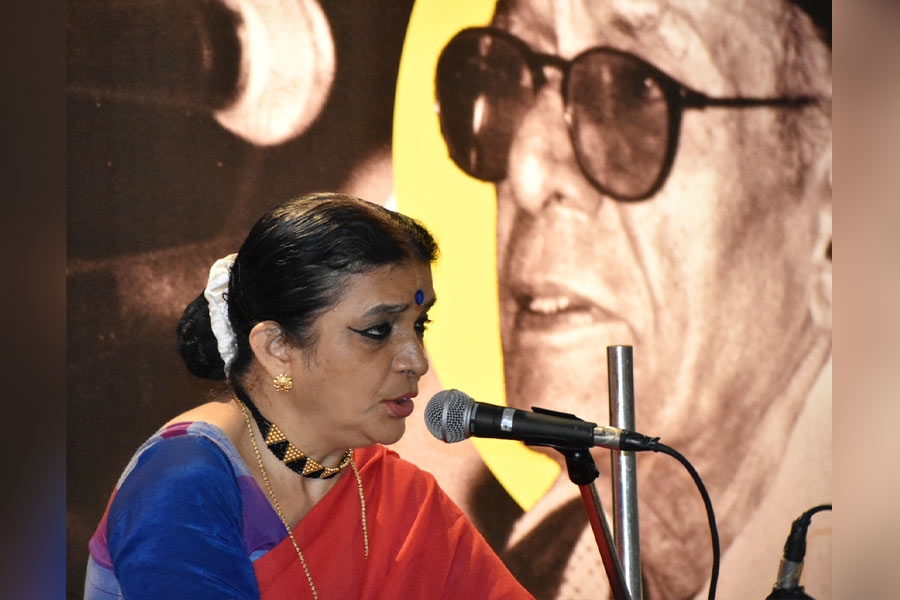
Nageen Tanvir during her performance
M. K. Raina then moderated a panel discussion examining the ‘Significance of Habib Tanvir’s Theatre in Today’s Socio-Political Context’. Theatre critic Samik Bandyopadhyay opened the conversation by reminiscing over how he organised the first performance of Charandas Chor in Kolkata, back in 1976. “During an interview, Habib sahab once told me, ‘I’m not directing or giving orders. I’m an interventionist, bringing local experiences to larger spaces so that smaller histories can connect. It is time that we take up this challenge that he left us with,” he said.
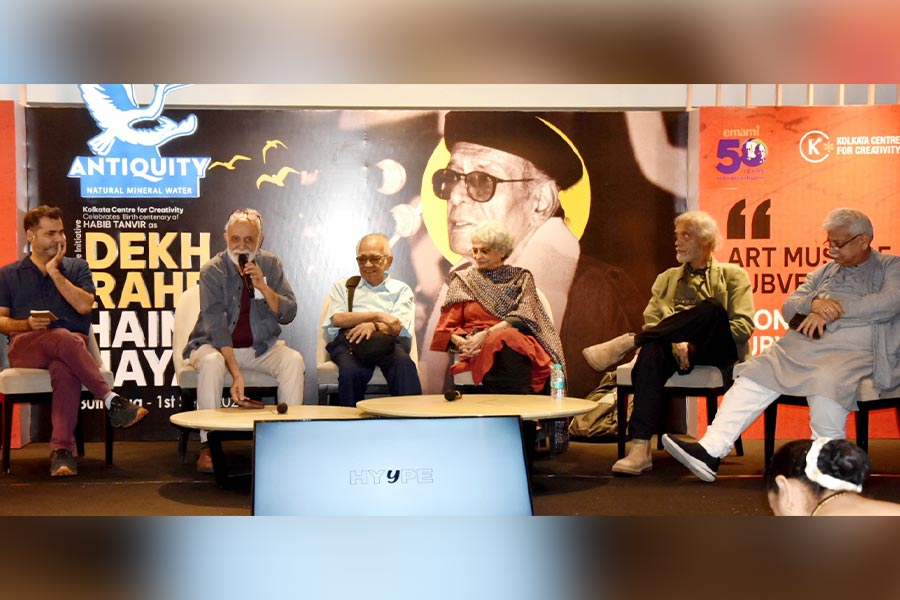
The significance of Tanvir’s theatre in today’s socio-political context was the subject of a panel discussion among (L-R) Brahma Prakash, M. K. Raina, Samik Bandyopadhyay, Anuradha Kapur and Sudhir Mishra
Writer and cultural theorist Brahma Prakash presented a scathing anecdote of Tanvir’s politics to supplement this. “Once, he got up on stage and said, ‘Mujhe tanashah pasand hai. (I love dictators).’ There was a long, unnerving pause. After a while, he said, ‘Without dictators, theatre would be boring.’” Prakash’s enactment of Tanvir’s statement left the audience in splits, while driving home his zest to speak truth to power.
Theatre director Anuradha Kapur stated how Tanvir will continue to remain relevant not just because he reinvented himself during his lifetime, but also for how his work reinvents itself long after his passing. She said, “His text changes as and when it’s performed around the country. In an age where tradition is everything, it is liberating that Habib sahab doesn’t have a tradition. He gave people an energy, which they keep refuelling even after a century.” His desire to swim against the tide was recognised by Sudhir Mishra too, citing Tanvir’s rejection of commercial filmmaking in Bombay. “Like all other arrogant artists, he was constantly trying to find his voice. Be it at Royal Academy of Dramatic Art in London, or embracing the openness of folk in Chhattisgarh. By making modern plays with local artists, he showed us how to break tradition. There can never be anyone like him.”
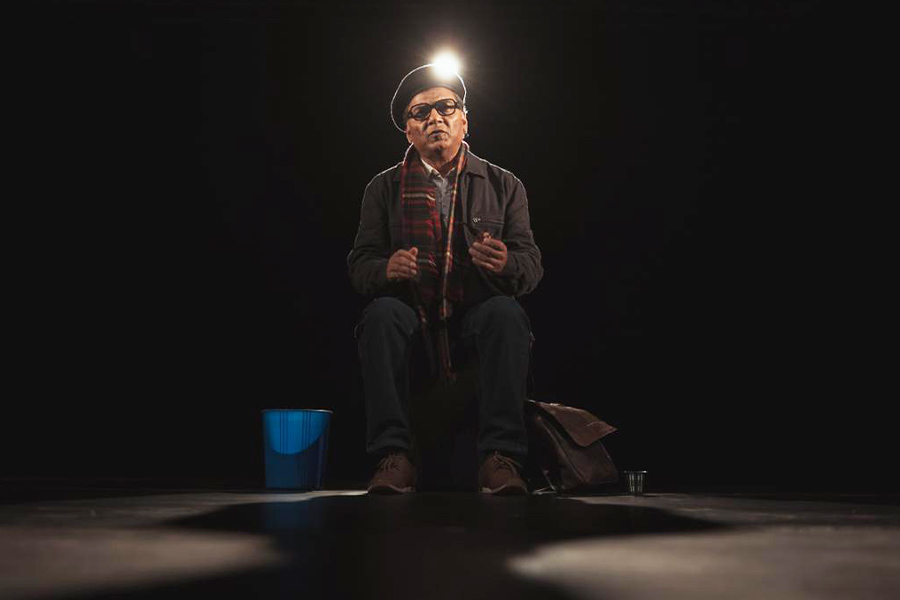
The magnum opus of the evening was the grand premiere of ‘Habibnama’, a performance dedicated to Tanvir’s life by Danish Husain
The evening’s second musical performance featured folk singer Poonam Tiwari and her troupe from Chhattisgarh, who lent their voice to some of the most iconic songs from Tanvir’s plays, including Ek Chor Ne Rang Jamaya, Dekh Rahe Hain Nayna, Dekh Rahe Hain Nayan and Aadmi Namak.
The curtains fell on Day One with the grand premiere of Habibnama, a performance that blended Tanvir’s autobiographical writings and public interviews under the design and direction of Danish Husain.
“By itself, KCC is a building. Everyone here has breathed life into it. We never thought we’d be able to put together such a beautiful event. With this festival, we want Habib sahab’s art to inspire many generations to come,” signed off KCC chairperson Richa Agarwal.
